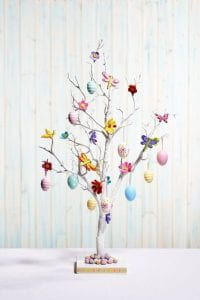Welcome back to week seven of the Student Blogging Challenge! I absolutely love holidays since I don’t have to go to school, and I can spend more time with my favorite relatives. Being half-German means that when celebrating certain holidays, we have different traditions that come along with honoring these holidays. For my blog post this week, I will be writing about some popular German holidays, and how I celebrate them.
Neujahr
This is the German word for “New Year’s”, we celebrate New Year’s slightly different than the Americans. We actually use fireworks to celebrate, and feast on delicious food. In Germany, we sometimes send New Year’s cards to family & friends about important events in our life that happened that year. Because of the HOA in my neighborhood, we unfortunately can not use fireworks to celebrate during New Year’s. But, my family still eats delicious food to honor the new year!
Fasching/Karneval
A very popular holiday among children in Germany, Karneval (carnival) celebrates the end of winter and drives away the evil spirits. Originated in pre-christian times, Karneval can also trace back to historical events such as the end of the French revolution. This holiday has multiple different names, depending on which region you come from. Since my mom is from the state of Bavaria, we call it “fasching”. Karneval is like a German Mardi Gras. I like to think of it as a second Halloween but that irritates many Germans (including my mom). As a child, my dream was to travel to Germany and celebrate this holiday. But, because I would have to miss school, and airplane tickets are so expensive, I never accomplished one of my childhood dreams.
Ostern
The German celebration of Easter is not too different compared to how Americans celebrate it. We still cherish the Easter inspired icons, such as eggs, flowers, rabbits, and many of the other customs. A German (and an Austrian) Easter tradition is colorful, hollowed-out eggs. Let me explain this. We poke small holes on the top and on the bottom of an egg, so that a slender, wooden stick can fit right through it. After poking the holes, we hold the stick and paint the egg. Then, we get a tree branch, and hang multiple colorful eggs on the branch.
Oktoberfest
I wouldn’t necessarily count this as a holiday, but I decided to add this in for fun. This “holiday” started off in 1810 with Crown Prince Ludwig and Princess Therese von Sachsen-Hildburghausen (long name, I know). They celebrated their wedding, and had a HUGE celebration in Munich. Like REALLY BIG. It became so popular that they decided to do this every year, and thus Oktoberfest was born. It is a weird name, since Oktoberfest actually starts in September. It lasts for around sixteen days and ends on the third Sunday of October.
Weihnachten
Germany provided some Christmas traditions that most Americans use. Because of traditional German Christmas customs, we now think of the iconic decorated Christmas tree, and Santa as Christmas symbols. Most Germans spend time with their family and *usually* eat goose. German children actually open their gifts on the 24th instead of the 25th. We also have Christmas markets, where they sell all things Christmas related (including cutting boards!) After Christmas Day, some Germans celebrate Boxing Day, but my family does not.

